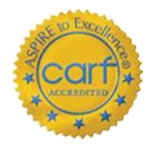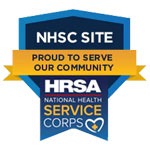Properly constructed, a planned gift can minimize tax exposure, provide a significant gift to support the programs that Henderson Behavioral Health provides for our community, and increase current income as well as the final value of assets your heirs will inherit.
If you are interested in minimizing income or estate taxes and wish to make a charitable gift, you need to take two steps:
-
Talk to a member of the development staff to discuss where you would like to direct your gift. We can help with the decision-making process and make recommendations, as needed.
Contact your professional advisor for help. Discuss your objectives with a professional advisor, such as your attorney, accountant, or financial planner. He or she can help you determine the most advantageous method by which to make your gift. We can recommend several expert advisors if you do not have one.
Bequests
Many individuals who have supported HBH during their lifetime will include us in their estate. Provisions are usually revocable and donors may increase or decrease the bequest at any time during their life. These gifts can be either specific dollar amounts or a percentage of the estate.
Life Insurance or IRA’s
Simply by naming HBH as beneficiary and owner of a policy or IRA (either existing or new), the donor can make a wonderful gift that may be significantly greater than might otherwise be possible. A donor who irrevocably transfers life insurance or IRA to us can claim an income tax deduction. The deduction is limited to 50% of adjusted gross income with a five-year carryover period for the excess.
Life Insurance or IRA’s
Simply by naming HBH as beneficiary and owner of a policy or IRA (either existing or new), the donor can make a wonderful gift that may be significantly greater than might otherwise be possible. A donor who irrevocably transfers life insurance or IRA to us can claim an income tax deduction. The deduction is limited to 50% of adjusted gross income with a five-year carryover period for the excess.
Charitable Gift Annuity
This is an agreement between the donor and HBH; in exchange for a gift of cash, stock, mutual fund shares, or other assets, we guarantee to pay a fixed income for life to the donor or a beneficiary the donor chooses. The income may be immediate or deferred. HBH receives the assets that remain after the income beneficiary dies.
Charitable Remainder Trust
A Charitable Remainder Trust takes property from the donor’s estate, distributes the income to the donor, and passes the balance of its assets to HBH upon the beneficiary’s death. Thus, property is removed from the estate and replaced with a charitable deduction. The donor retains the income that the trust property produces. IRS rates and tables determine the charitable deduction. The property used for this gift is usually property that would involve a sizable capital gains tax if sold.
Charitable Lead Trust
A Charitable Lead Trust takes property from the donor’s estate, distributes the income to HBH, and passes the balance of its assets to the heirs at the donor’s death. Thus, property that produces or could produce taxable income is removed from the estate and replaced with a charitable deduction. The property used for this gift is usually property that would involve a sizable capital gains tax if sold and converted to income producing property.
A charitable trust is often accompanied by an Irrevocable Life Insurance Trust (ILIT), which is sometimes referred to as a Wealth Replacement Trust. The trust buys life insurance on the donor’s life with the heirs as beneficiaries. Thus, the amount of the donated asset is replaced to benefit the heirs.
Click here to review some frequently asked questions & answers about planned gifts.





